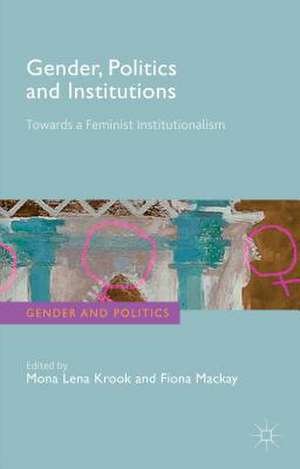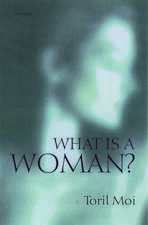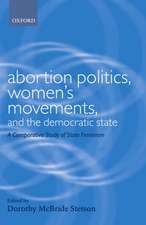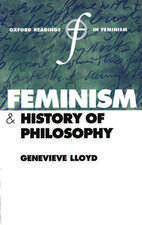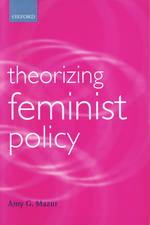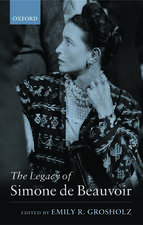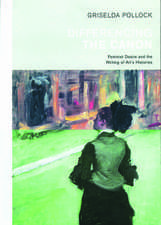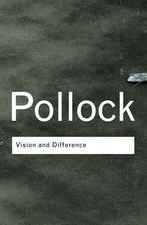Gender, Politics and Institutions: Towards a Feminist Institutionalism: Gender and Politics
Editat de M. Krook, F. Mackayen Limba Engleză Paperback – 8 dec 2010
| Toate formatele și edițiile | Preț | Express |
|---|---|---|
| Paperback (1) | 382.95 lei 6-8 săpt. | |
| Palgrave Macmillan UK – 8 dec 2010 | 382.95 lei 6-8 săpt. | |
| Hardback (1) | 388.13 lei 6-8 săpt. | |
| Palgrave Macmillan UK – 8 dec 2010 | 388.13 lei 6-8 săpt. |
Din seria Gender and Politics
- 20%
 Preț: 690.22 lei
Preț: 690.22 lei - 20%
 Preț: 691.13 lei
Preț: 691.13 lei -
 Preț: 172.47 lei
Preț: 172.47 lei - 18%
 Preț: 788.90 lei
Preț: 788.90 lei -
 Preț: 392.60 lei
Preț: 392.60 lei - 18%
 Preț: 947.04 lei
Preț: 947.04 lei - 27%
 Preț: 359.33 lei
Preț: 359.33 lei - 18%
 Preț: 2117.61 lei
Preț: 2117.61 lei -
 Preț: 396.02 lei
Preț: 396.02 lei - 15%
 Preț: 530.10 lei
Preț: 530.10 lei - 15%
 Preț: 641.71 lei
Preț: 641.71 lei -
 Preț: 383.71 lei
Preț: 383.71 lei -
 Preț: 390.63 lei
Preț: 390.63 lei -
 Preț: 386.00 lei
Preț: 386.00 lei - 9%
 Preț: 254.97 lei
Preț: 254.97 lei - 15%
 Preț: 639.90 lei
Preț: 639.90 lei -
 Preț: 389.70 lei
Preț: 389.70 lei - 18%
 Preț: 1111.22 lei
Preț: 1111.22 lei - 22%
 Preț: 122.13 lei
Preț: 122.13 lei -
 Preț: 387.75 lei
Preț: 387.75 lei -
 Preț: 381.59 lei
Preț: 381.59 lei -
 Preț: 381.43 lei
Preț: 381.43 lei -
 Preț: 385.25 lei
Preț: 385.25 lei -
 Preț: 381.00 lei
Preț: 381.00 lei - 34%
 Preț: 1010.80 lei
Preț: 1010.80 lei - 22%
 Preț: 554.89 lei
Preț: 554.89 lei - 18%
 Preț: 948.61 lei
Preț: 948.61 lei - 18%
 Preț: 730.02 lei
Preț: 730.02 lei - 18%
 Preț: 948.47 lei
Preț: 948.47 lei - 27%
 Preț: 346.59 lei
Preț: 346.59 lei -
 Preț: 418.67 lei
Preț: 418.67 lei -
 Preț: 483.12 lei
Preț: 483.12 lei - 15%
 Preț: 500.42 lei
Preț: 500.42 lei -
 Preț: 386.39 lei
Preț: 386.39 lei - 28%
 Preț: 375.36 lei
Preț: 375.36 lei
Preț: 382.95 lei
Nou
Puncte Express: 574
Preț estimativ în valută:
73.28€ • 76.71$ • 60.63£
73.28€ • 76.71$ • 60.63£
Carte tipărită la comandă
Livrare economică 05-19 aprilie
Preluare comenzi: 021 569.72.76
Specificații
ISBN-13: 9781137545299
ISBN-10: 1137545291
Pagini: 232
Ilustrații: XVII, 232 p.
Dimensiuni: 140 x 216 x 13 mm
Greutate: 0.3 kg
Ediția:2011
Editura: Palgrave Macmillan UK
Colecția Palgrave Macmillan
Seria Gender and Politics
Locul publicării:London, United Kingdom
ISBN-10: 1137545291
Pagini: 232
Ilustrații: XVII, 232 p.
Dimensiuni: 140 x 216 x 13 mm
Greutate: 0.3 kg
Ediția:2011
Editura: Palgrave Macmillan UK
Colecția Palgrave Macmillan
Seria Gender and Politics
Locul publicării:London, United Kingdom
Cuprins
Foreword; J.Lovenduski Introduction: Gender, Politics, and Institutions: Setting the Agenda; F.Mackay & M.L.Krook Gender and Institutions of Political Recruitment: Candidate Selection in Post-Devolution Scotland; M.Kenny Discursive Strategies for Institutional Reform: Gender Quotas in Sweden and France; L.Freidenvall & M.L.Krook Gendered Institutions and Women's Substantive Representation: Female Legislators in Argentina and Chile; S.Franceschet Gendering the Institutional Reform of the Welfare State: Germany, the United Kingdom, and Switzerland; M.Beyeler & C.Annesley Gender and Institutions of Multi-Level Governance: Child Care and Social Policy Debates in Canada; J.Grace The Institutional Roots of Post-Communist Family Policy: Comparing the Czech and Slovak Republics; H.Hašková & S.Saxonberg Gendering Federalism: Institutions of Decentralization and Power-Sharing; J.Vickers Gendered Institutionalist Analysis: Understanding Democratic Transitions; G.Waylen Nested Newness and Institutional Innovation: Expanding Gender Justice in the International Criminal Court; L.Chappell Conclusion: Towards a Feminist Institutionalism?; F.Mackay
Recenzii
'This superb book is one of those rare collections that moves a field forward. Scholars of institutionalism, for all their vital contributions to the social sciences, have given short shrift to inequality. Feminist social scientists have made inequality their core concern ... Krook and Mackay ... open up a pathbreaking terrain for the study of feminist institutionalism.'
Mary Fainsod Katzenstein, Government Department, Cornell University, USA
'A really innovative and important collection which shows, both theoretically and in rich empirical detail, the considerable challenge that feminism poses to contemporary institutionalism.'
Colin Hay, Professor of Political Analysis, University of Sheffield, UK
'Based on original research, the book shows how institutionalism can benefit from a gendered analysis of power, agency and change. A fascinating and productive synthesis that will be of value to students, scholars and policymakers alike.'
Vivien Lowndes, Professor of Local Government Studies, de Montfort University, UK
'Does institutionalism need a concept of gender? And does feminism need institutionalism? Probably the answers to these questions will turn on what we think is good social science. Good feminist social science is simply good social science, it is no more or less than good practice. It should concomitantly be impossible to imagine a good social science that ignores gender. Yet this is precisely what most political science does and the new institutionalism, despite its concern with power relations in institutions, is no exception. Arguably any good institutionalist should realise the importance of gender relations to the configuration of institutions. But they do not. They need to be reminded and feminist institutionalism, exemplified by the essays in this groundbreaking volume, is the reminder.'
From the Foreword by Joni Lovenduski, Anniversary Professor of Politics, Birkbeck College, University of London, UK
'This book demonstrates how very much feminist and gender studies have to contribute to the 'neo-institutionalist' turn in political science. It offers major insights into the 'gendering' of institutions, with essays by top scholars on a wide range of issues, from government structures to electoral politics, family organization to welfare provision. Most importantly, it makes it clear that gender matters in a multitude of ways, and that one cannot fully understand institutional continuity or change without coming to grips with 'feminist institutionalism'.'
Vivien A. Schmidt, Jean Monnet Professor of European Integration, Boston University, USA
'In Gender, Politics and Institutions, a group of international and internationally recognized scholars of gender and politics examines how political institutions function to create, sustain, structure, undermine and transform inequalities of political power between women and men. The book provides a careful elucidation of elements of institutional analysis and institutionalist theory. It undertakes a detailed discussion of gender: where gender can be found in institutions and institutional actors, and how gender works as an active if not always visible and explicit process. The various chapters address gendered institutionalist public policy, state structures, electoral competition, political development of new institutions (such as the International Criminal Court), and the continuities and disruptions that confirm and/or recast gendered political arrangements in the context of state transitions to democracy. The volume's scope of institutional analysis is matched by the range of country cases it employs, making it a powerful contribution to comparative politics research.The collection is also an acknowledgment of and a challenge to mainstream comparative political institutionalism, in each of its variants, and offers an opening for enriching and extending political science'sappreciation of how political institutions function across time. Gender, Politics and Institutions is an excellent contribution to the study of political institutions, a volume that comparative scholars of institutional politics, state political development, and gender and the state will turn to as the foundational work on gender, institutions, and political power.'
Karen Beckwith, Flora Stone Mather Professor of Political Science, Case Western Reserve University, USA
'This collection of essays travels across the world, carefully mixing theory and analysis from gender and institutional studies, with very promising results. The authors manage to maintain an engaging and clear dialogue, and offer a compelling insight into future research possibilities.'
LSE Politics and Policy Blog
'Do we need another institutionalism? The answer is absolutely. We need institutionalism to evolve in order to situate formal and informal institutions within a context of wider social divisions including gender. This ground-breaking book, edited by Mona Lena Krook and Fiona Mackay, does precisely this. Feminist institutionalism has arrived!'
Allan McConnell, Professor of Politics, University of Sydney, Australia
Mary Fainsod Katzenstein, Government Department, Cornell University, USA
'A really innovative and important collection which shows, both theoretically and in rich empirical detail, the considerable challenge that feminism poses to contemporary institutionalism.'
Colin Hay, Professor of Political Analysis, University of Sheffield, UK
'Based on original research, the book shows how institutionalism can benefit from a gendered analysis of power, agency and change. A fascinating and productive synthesis that will be of value to students, scholars and policymakers alike.'
Vivien Lowndes, Professor of Local Government Studies, de Montfort University, UK
'Does institutionalism need a concept of gender? And does feminism need institutionalism? Probably the answers to these questions will turn on what we think is good social science. Good feminist social science is simply good social science, it is no more or less than good practice. It should concomitantly be impossible to imagine a good social science that ignores gender. Yet this is precisely what most political science does and the new institutionalism, despite its concern with power relations in institutions, is no exception. Arguably any good institutionalist should realise the importance of gender relations to the configuration of institutions. But they do not. They need to be reminded and feminist institutionalism, exemplified by the essays in this groundbreaking volume, is the reminder.'
From the Foreword by Joni Lovenduski, Anniversary Professor of Politics, Birkbeck College, University of London, UK
'This book demonstrates how very much feminist and gender studies have to contribute to the 'neo-institutionalist' turn in political science. It offers major insights into the 'gendering' of institutions, with essays by top scholars on a wide range of issues, from government structures to electoral politics, family organization to welfare provision. Most importantly, it makes it clear that gender matters in a multitude of ways, and that one cannot fully understand institutional continuity or change without coming to grips with 'feminist institutionalism'.'
Vivien A. Schmidt, Jean Monnet Professor of European Integration, Boston University, USA
'In Gender, Politics and Institutions, a group of international and internationally recognized scholars of gender and politics examines how political institutions function to create, sustain, structure, undermine and transform inequalities of political power between women and men. The book provides a careful elucidation of elements of institutional analysis and institutionalist theory. It undertakes a detailed discussion of gender: where gender can be found in institutions and institutional actors, and how gender works as an active if not always visible and explicit process. The various chapters address gendered institutionalist public policy, state structures, electoral competition, political development of new institutions (such as the International Criminal Court), and the continuities and disruptions that confirm and/or recast gendered political arrangements in the context of state transitions to democracy. The volume's scope of institutional analysis is matched by the range of country cases it employs, making it a powerful contribution to comparative politics research.The collection is also an acknowledgment of and a challenge to mainstream comparative political institutionalism, in each of its variants, and offers an opening for enriching and extending political science'sappreciation of how political institutions function across time. Gender, Politics and Institutions is an excellent contribution to the study of political institutions, a volume that comparative scholars of institutional politics, state political development, and gender and the state will turn to as the foundational work on gender, institutions, and political power.'
Karen Beckwith, Flora Stone Mather Professor of Political Science, Case Western Reserve University, USA
'This collection of essays travels across the world, carefully mixing theory and analysis from gender and institutional studies, with very promising results. The authors manage to maintain an engaging and clear dialogue, and offer a compelling insight into future research possibilities.'
LSE Politics and Policy Blog
'Do we need another institutionalism? The answer is absolutely. We need institutionalism to evolve in order to situate formal and informal institutions within a context of wider social divisions including gender. This ground-breaking book, edited by Mona Lena Krook and Fiona Mackay, does precisely this. Feminist institutionalism has arrived!'
Allan McConnell, Professor of Politics, University of Sydney, Australia
Notă biografică
CLAIRE ANNESLEY Senior Lecturer in European Politics at the University of Manchester, UKMICHELLE BEYELER Lecturer in the Institute of Political Science at the University of Bern, SwitzerlandLOUISE CHAPPELL Professor and Australian Research Council Future Fellow in the School of Social Sciences and International Studies at the University of New South Wales, AustraliaSUSAN FRANCESCHET Associate Professor in the Department of Political Science at the University of Calgary, CanadaLENITA FREIDENVALL Researcher at the Department of Political Science at Stockholm University, Sweden JOAN GRACE Associate Professor in the Department of Politics at the University of Winnipeg, CanadaHANA HA KOVÁ Researcher in the Gender and Sociology Department in the Institute of Sociology of the Academy of Sciences, Czech RepublicMERYL KENNY Economic and Social Research Council Postdoctoral Fellow at the University of Edinburgh, UKMONA LENA KROOK Assistant Professor of Political Science and Women, Gender, and Sexuality Studies at Washington University in St. Louis, USAJONI LOVENDUSKI Anniversary Professor of Politics at Birkbeck College, University of London, UKFIONA MACKAY Senior Lecturer in Politics and International Relations in the School of Social and Political Studies at the University of Edinburgh, UKSTEVEN SAXONBERG Professor of Sociology at the Department of Social Policy and Social Work at the Masaryk University in Brno, Czech RepublicJILL VICKERS Distinguished Research Professor in Political Science at Carleton University in Ottawa, CanadaGEORGINA WAYLEN Professor in Politics at the University of Sheffield, UK
